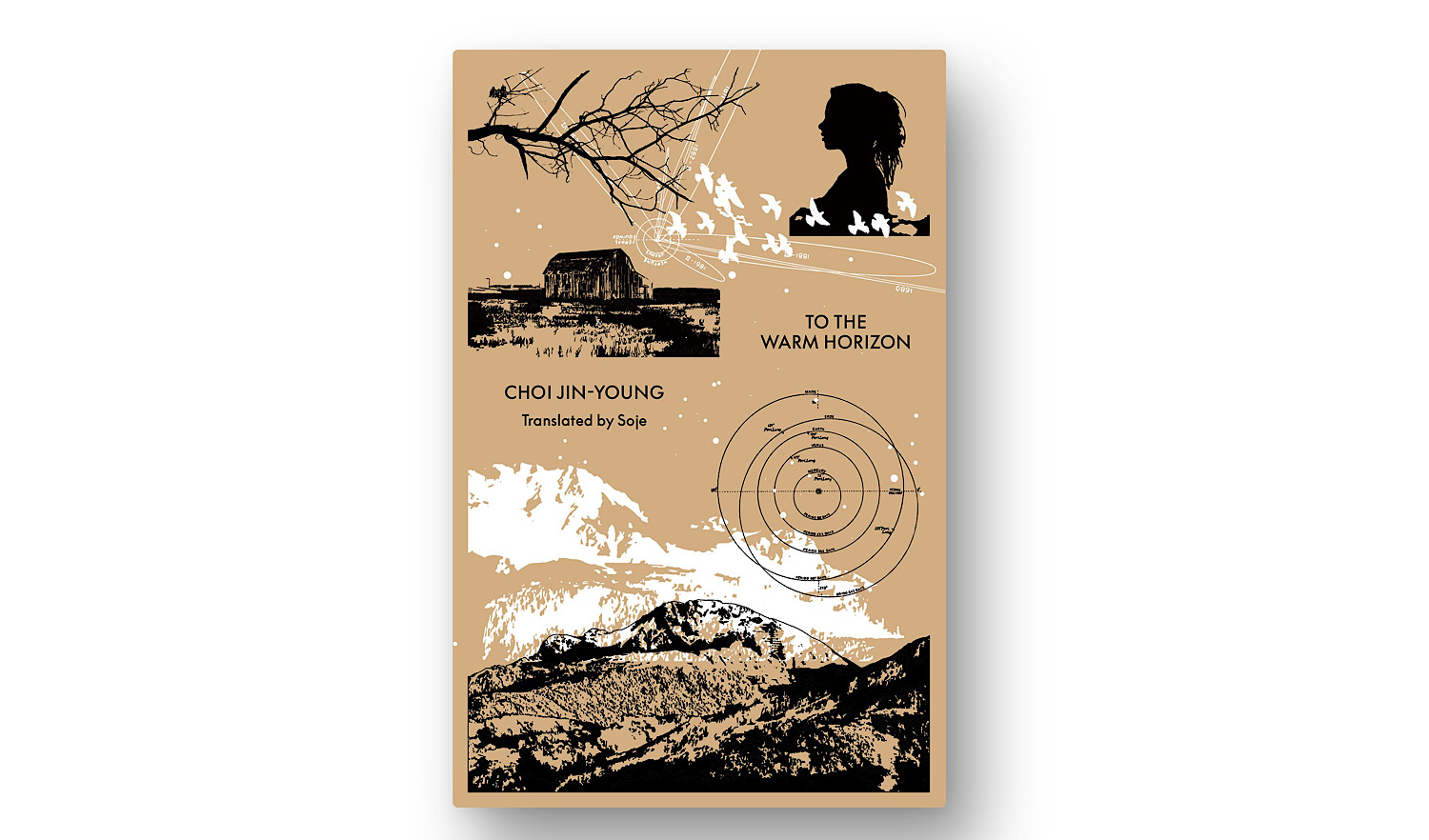BRIANNA HIRAMI WRITES — Choi Jin-Young’s To The Warm Horizon (2021) captivates its readers by revealing the dark and difficult truth surrounding human nature. However, we come to understand that there is often love and glimpses of hope throughout periods of complete chaos. This page-turning novel starts off by briskly and adeptly describing the horrific state that the world is in through the point-of-view of four different voices.
The entire world, including Korea, has been infected by a deadly and highly contagious disease that devastated normal life. Family and friends are dying left and right while rape, robbery, and violence are common occurrences. The lesson is quickly learned by those who survive: nobody can be trusted. Against this grim backdrop, the superb novel’s two main protagonists, Dori and Jina, manage to find love with each other despite everything. They share similar stories of trauma: they both experienced the loss of many of their family members and are both on the run to find somewhere better than Korea.
Dori joins Jina and her family on their journey to find a safer place beyond the border. Another character, Ryu, demonstrates how people can live without a sense of passion or drive. She continuously reflects on her life before the outbreak and realizes how mundane and unfulfilling that previous life was. Despite this, she took the life she lived, although disappointing and stressful, for granted. However, along all their journeys, the three of them encounter unimaginable suffering that intensifies the worst parts of humanity and witness how easily humans can revert to evil when given the chance.

To The Warm Horizon, now one of Choi Jin-Young’s most popular novels, due to the themes of hope, fear, and love in its morbid post-apocalyptic landscape. She also gained popularity and recognition through her most popular novel, The Name of the Girl Who Passed By You, which won the Hankyoreh Literary Award in 2010. The translation by is the first and only English translation. Lee is also known for translations of Lee Hyemi’s Unexpected Vanilla and Lee Soho’s Catcalling and openly looks for novels that “translate women writers who write about women for women, identifying herself as a queer Korean literary translator.
This novel starts off with Ryu narrating the details of the fatal virus that has caused destruction around the globe and describing how the virus took the lives of more than 100,000 people per day in Korea and filled the streets with corpses. A ludicrous rumor spreads that eating the liver of children cures the disease. Everyone has fled Korea in hopes of finding something — or somewhere – hospitable to humans. Ryu flees only with her younger son, Haemin, and her husband, Dan, and abandons the rest of her friends and family without looking back.
Like Ryu and her family, Dori and her younger sister, Joy, are on the run beyond the border. They rummage through the remains of abandoned buildings, homes, cars, and stores all in the hopes of finding food, supplies, and shelter to survive. It is a daunting and stressful life for just the two of them. When they meet Jina and her family on their truck, and Jina offers the tools for basic survival, Dori goes for the alliance. Dori is also immediately attracted to Jina’s beauty, kindness, and her different thinking about real life. Dori explains that“Jina kept…doing things. She made me think differently. She showed me that I could laugh and be happy, even in a situation like this. If someone gave me a tube of lipstick, could I react as happily as Jina did?”
The two of them share an intense romantic connection with each other. Their connection only strengthens as they continue traveling across the country with Jina and her family. They begin to rely on each other for precious moments of happiness through all the suffering. Unlike Jina herself, her family completely detests the idea of a stranger using their precious supplies and direct poisonous jealousy toward her. Jina’s family asks itself, “Why is this woman alive instead of my family?” During a raid, they blame her for the death of Jina’s uncle and for “almost getting Jina killed.” The narrator reveals that “Everyone seemed to believe that Taewoo died because of Dori. Really. That Jina could have died because of Dori. That something worse could happen because of Dori. That nothing would’ve happened tonight if Dori hadn’t been with us.” Overwhelmed by the entire family’s feral hatred, Dori flees, leaving even Jina behind. But even while separated, they both find within themselves a measure of solace in the hope of reuniting. Dori and Jina’s relationship teaches that even through the worst of times, love and passion can sustain hope, even during times when hope may seem lost and despair seems the easiest option.

New book reviewer, Brianna Hirami, is a recent graduate of Loyola Marymount University with a major in English and a minor in Asian and Pacific Studies. Brianna will continue following her literary passions at LMU graduate school’s Masters in Literature program. She is fluent in Korean and is learning to speak Japanese.

